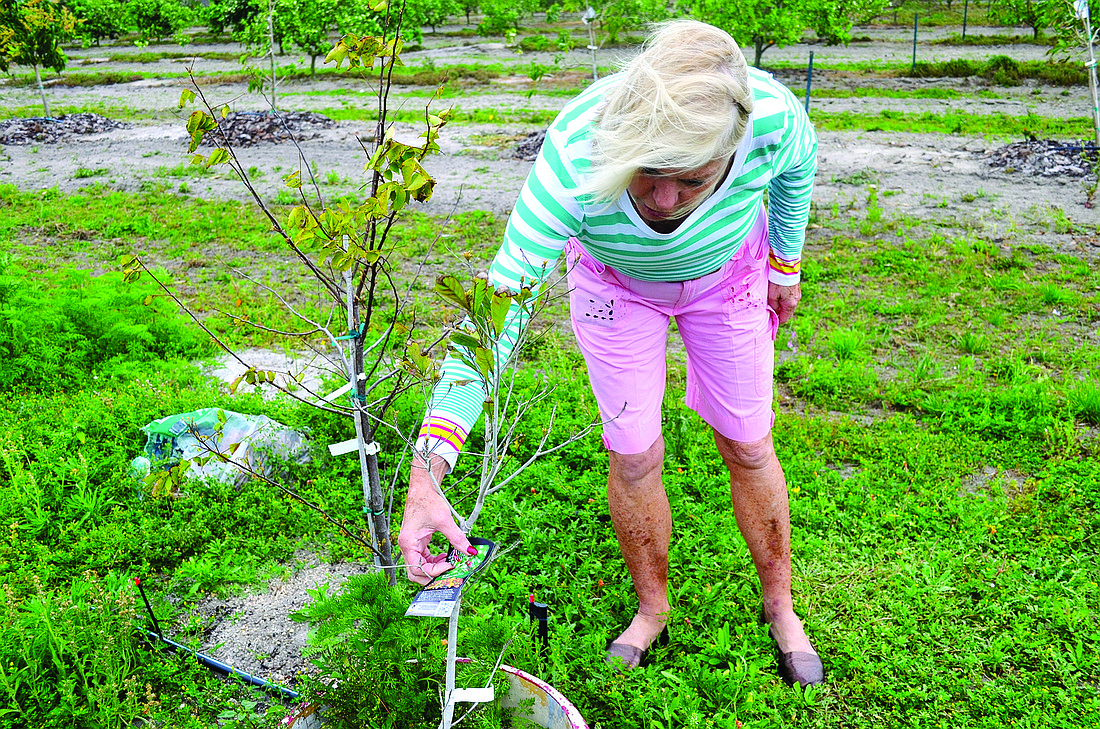- January 15, 2025
-
-
Loading

Loading

EAST COUNTY — For Dean Mixon, a farmer’s son who has spent 45 years in the business of citrus, the 2013-2014 season has been brutal.
In a normal season, Mixon sells about 90% of the raw fruit coming in from the grove. So far this season, sellable citrus produce is closer to 60%.
“Our crop and the citrus industry has had three years of decline,” Mixon said.
Unpredictable weather patterns and the presence of pests — particularly, Asian citrus psyllids — have left Mixon and his wife, Janet, co-owners of Mixon Fruit Farms, with a perfect storm for a poor year for citrus crops.
The problem has affected all the property’s 50 acres. The insects, originally found in Florida in the late ‘90s, not only feed on the leaves and stems of citrus trees, but they also spread a tree-killing disease, Huanglongbig (HLB), or Citrus Greening Disease. Once infected, the tree’s roots are unable to support the tree and it produces soft, misshaped fruit, unsuitable for eating, until the tree dies about three to five years later.
No cure for HLB has been discovered, yet.
Mixon, however, now uses a new treatment, which he believes fights against the psyllids — AgriSolv C-100.
Since the Mixons started using the treatment in the beginning of January, by applying it to each plant once a week, the Mixons have noticed more plants are blooming and they have produced the best crops they have seen in the last three years, Dean Mixon said.
Creators of the product do not categorize the formula as a fertilizer or pesticide because of its “eco-friendly” ingredients.
While the Mixons appreciate that the pest repellant is all-natural, produced from plant ingredients found in corn, grains and coconuts, among other fruits and vegetables, it possesses a bigger perk: It has strengthened their trees by getting rid of the insects.
The treatment penetrates a plant’s cells to increase the amount of sugar produced in the photosynthesis process, which helps the plant’s immune system and makes it healthier from the roots up to its leaves.
Treated plants will fight off diseases, such as HLB, Mixon said, while also eliminating the plant’s inhabitants. By crushing the psyllids’ exoskeletons and making it hard for them to breathe, the organic product harms the insects without poisoning them.
Dean and Janet Mixon hope their efforts will encourage other farmers in the state to use more environmentally-friendly products.
To the Mixons, the cost of AgriSolv, although more expensive than other chemical treatments, will save farmers dollars, in crops, by saving plants.
The couple traveled to Tallahassee last week to lobby for the Agricultural Act of 2014’s new Farm Bill, which allots more money to the federal government to help farmers fund needs, such as more organic practices, that they otherwise could not afford.
Janet Mixon worries farmers won’t benefit from the bill in time to save their crops from HLB, which continues to spread across the state’s 32 citrus-producing counties and throughout the country.
She urges state officials to observe the positive changes happening on her property and to take action as soon as possible.
“We really believe (the treatment) is working,” Mixon said. “We do have a willingness to try new things, but we’ll see what happens. So far, so good.”
Mixon adds fruit options
Mixon Fruit Farms will soon have tropical fruits available for purchase.
Last summer, Dean and Janet Mixon planted more than 20 avocados, lychees, mango, mulberries, papayas and black sapote, or chocolate pudding fruits.
Mulberries have already started to bloom, and the Mixons expect other crops will soon be available.
The couple decided to plant the crops last summer so they would have fresh fruit during the citrus offseason and would be able to offer new products to their customers.
By the numbers
30 — Percentage of decrease of sellable crops Mixon Fruit Farms has produced in the 2013-2014 season
32 — The number of citrus-producing counties in Florida
50 — The number of acres of Mixon Fruit Farms
75 — The number of years the Mixon family has been in the citrus business
7,236 — In tons, the number of citrus crops produced last year in Florida
Contact Amanda Sebastiano at [email protected].